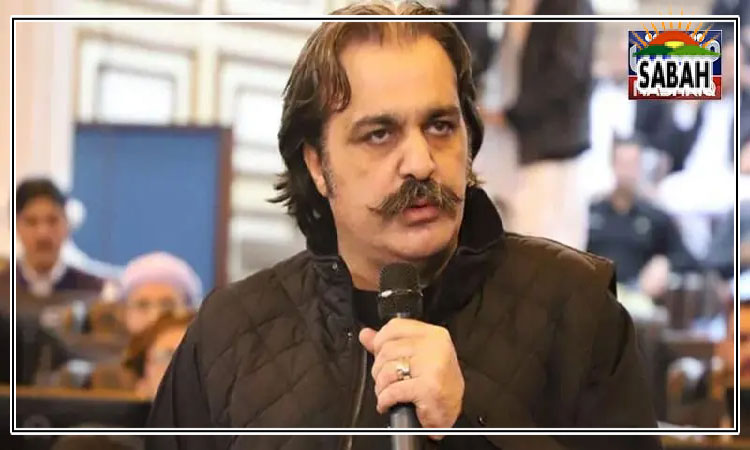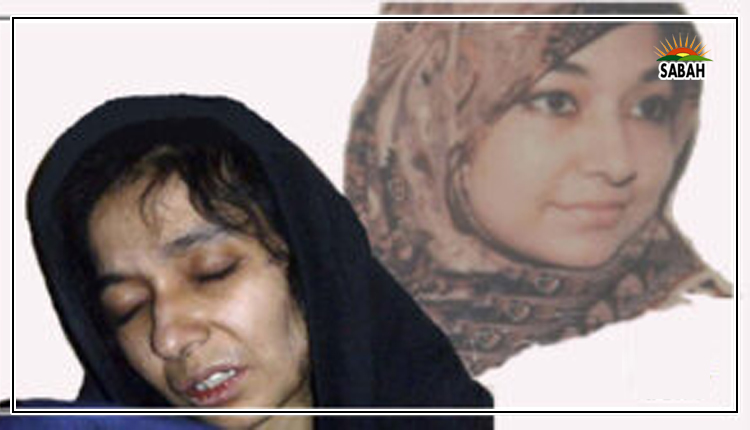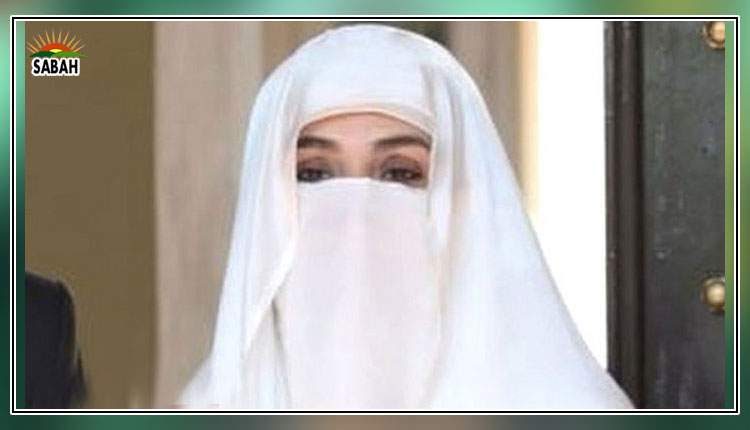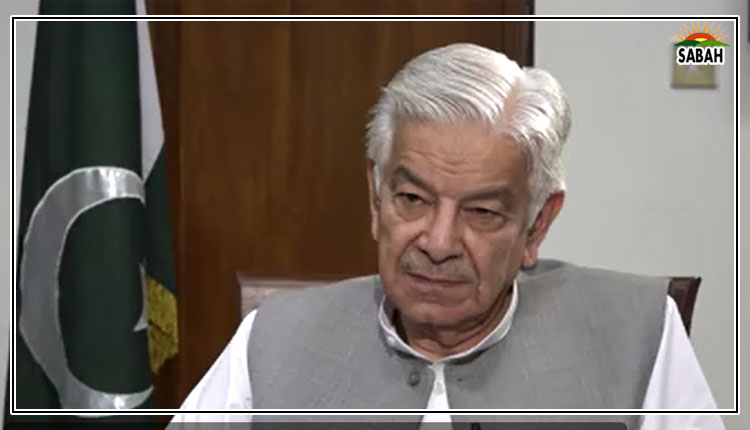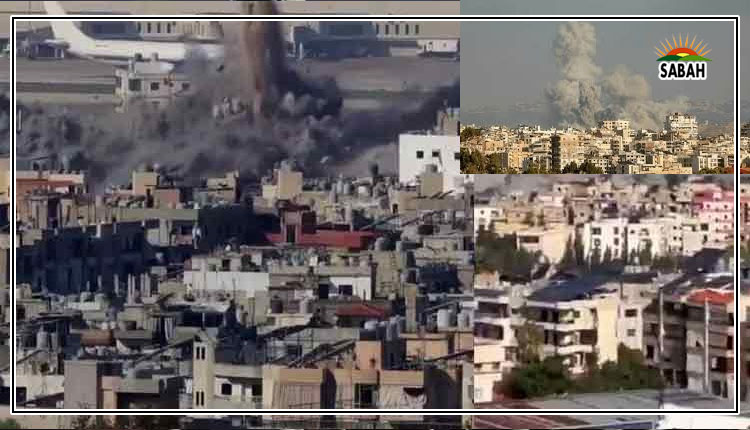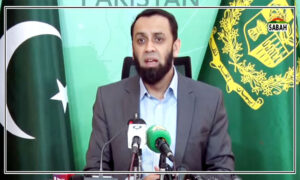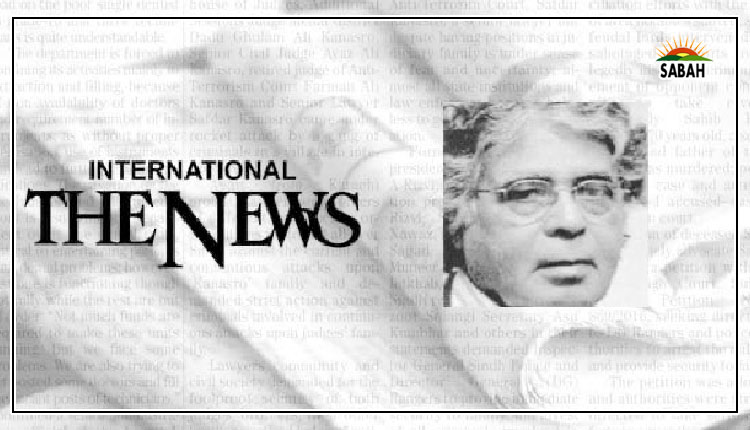In the pit of poverty…Ghazi Salahuddin
When Malik Meraj Khalid became caretaker prime minister in November 1997, he had his first close encounter with the prime ministers house in Islamabad. And his experience, in a sense, was of shock and awe. It was a lot more than what he had expected, though he had already been in high offices in his remarkable political career.
I can tell this story because I was among those journalists who had met him a few days after he had taken oath. That bewildered expression on his face is fixed in my memory. He could not believe that the property was so huge and was so opulent, resplendent in its pomp and show.
We admired him because he was a rare politician who rose from a very poor family of a village in Punjab. This was possible with the launch of Zulfikar Ali Bhuttos PPP and Meraj Khalid did not forsake his socialistic views and values.
One does not know if the magnificence of the prime ministers house has enhanced or lessened during the long intervening years. But the nation is perpetually in awe of the power and ceremony of our rulers despite a steady decline in national resources. There has been a lot of talk about the privileges and the protocol of our VIPs and VVIPs. News channels have had a fun time counting the security vehicles that constitute a prime ministers motorcade.
Anyhow, we have to revert to what we have now. The reason I thought of Meraj Khalid is that on Thursday I read a story on BBCs Urdu site about an assistant commissioners official vehicle and the debate it prompted on social media. Actually, this official of a district in Punjab posted, rather boastfully, a video of a new, black double-cabin that he had acquired, officially.
This led to comments by some netizens. What happened to a similar white vehicle that he already had? Well, that was given to the tehsildar and so on. Eventually, the grade-17 officer, a somewhat lowly rank in the hierarchy of our governance, removed his posts, though the debate continued and made it to BBC Urdu.
Incidentally, luxury vehicles serve as a mark of privilege for government officials and there frequently have been large allocations for the purchase of pricey cars even in the midst of economic contingencies. We have to wait for an outlier of the likes of the present chief justice Justice Qazi Faez Isa who said no to a bullet-proof BMW and security protocol on the day of his oath-taking.
Meanwhile, the common people of this country are tottering on a different, downward trajectory. In fact, my thoughts above may be taken as a foreword to exceedingly more serious issues that pertain to the lower depths of Pakistani society. We may all agree that one of the most dominant problems, collectively, is this universally shared feeling of hopelessness and depression. It emanates both from what is happening to you, living in these inflationary times, and what is happening to other people.
In this respect, I would not want to focus much on the rising incidents of terrorism and religious intolerance. Yes, the fact that a big suicide bombing can take place on the auspicious day of 12th Rabiul Awwal in Mastung would appear to be a vote of no confidence against the very principles and the ideology on which this country is founded.
But these incidents are happening in sequence and the rulers do not seem to be ready to make the necessary shifts in their policies that would deal with them in a decisive manner. After all, if the massacre of our schoolchildren in the Army Public School on a December 16 close to nine years ago did not change Pakistan, what will?
More attention, thus, has to be devoted to increasing poverty in the country and to the miseries that this devastating trend is handing out to millions of our hapless citizens. The big news this week and one that is not easy to comprehend is that according to the World Bank, poverty in Pakistan has surged to 39.4 per cent during the last fiscal year. This means that an additional 12.5 million people have slipped into poverty because of poor economic conditions.
One measure of the progress that mankind has made is the reduction in poverty at a global level. That is how countries have moved ahead on the path of material and social development. Why is Pakistan lagging behind in this miserable manner? Why has the poverty rate in this country risen from 34.2 per cent to 39.4 per cent in just one year? Why is our per capita income the lowest in South Asia, with the highest out-of-school kids in the world?
Let me recall one headline that was featured prominently in the media last week. It said, with minor variations: Tax the rich to protect the poor, IMF chief tells Pakistan. With it was a photograph of IMF Managing Director Kristalina Georgieva shaking hands with Pakistans caretaker PM Anwarul Haq Kakar. They met on the sidelines of the UN General Assembly session in New York.
This is what the IMF chief was quoted as telling the journalists: What we are asking in our programme is that please collect more taxes from the wealthy and please protect the poor people of Pakistan.
A headline is made of news. What makes news is a revelation or information about an incident or a matter of public interest. So, did we need the IMF chief to tell us something that we were not fully aware of? Was the secret of taxing the rich to protect the poor somehow kept from us all these years, through perhaps a conspiracy of hostile powers? Consider the world please that was repeated by the IMF chief.
The World Bank is telling us something more, if we care to listen. This was the headline: Pakistans economy on edge of precipice, warns World Bank.
Courtesy The News


